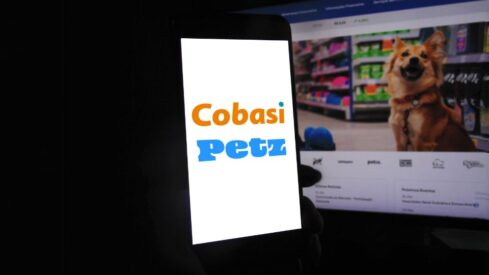Petz-Cobasi merger (I): A glimpse into the future of Latin America’s new pet retail giant

The combination of both Brazilian businesses is close to becoming a reality. GlobalPETS learns more about how the new company will fit into the local retail ecosystem.
The merger of Brazilian pet retailers Petz and Cobasi is expected to create a new leader in the largest market in South America, with a combined revenue of R$6.9 billion ($1.32B/€1.15B).
After over 3 years of discussions, both companies announced their merger process in April. To negotiate terms, this was followed by an exclusivity period of 60 days, extendable by an additional 30 days.
However, Petz recently announced that negotiations could extend until August 23, with a possible extension of more than a month as provided in the contract.
Petz confirms to GlobalPETS that both companies aim to “continue in the due diligence process and mapping synergies” and that the merger should be finalized by mid-2025. With this financial operation becoming a reality, we dive into what it will mean for the pet industry.
The basics
The merger aims to bring together 2 companies with similar profiles and sizes: Petz currently operates 252 stores, with a gross revenue of R$3.8 billion ($730M/€630M) in 2023. Cobasi, on the other hand, has 234 stores and generated R$3.1 billion ($596M/€520M) in revenue last year.
Paulo Nassar, the Founder and CEO of Cobasi, will lead the combined company. Sergio Zimerman, Founder and CEO of Petz, will take on the role of Chairman of the Board.
A shareholders’ agreement will be established between Zimerman and the Nassar family. The Petz CEO, that currently owns 47% of the company’s shares, will hold 24.5% of the combined entity.
Omnichannel capabilities
The power of this new merger is expected to benefit both companies, specifically supplier negotiations and strengthening omnichannel capabilities.
Cobasi excels in in-store service, while Petz has been building a strong online presence and advanced systems. The potential optimization of expansion and store opening plans for both companies overlap considerably.
“The primary goal of this merger is to reduce costs for both companies, allowing consumers to access better prices than we currently offer,” notes Sergio Zimerman in an interview with GlobalPETS, adding, “We are two very complementary companies, and this union will make us even stronger.”
In recent years, Petz has aimed to strengthen its omnichannel process and digital presence. According to the company’s data, over 9 out of 10 orders placed via its digital channel are directed to a store and delivered within 1 business day.
“These numbers prove that our phygital strategy has solidified the path of growth by aligning the digital strategy with offline,” highlights Zimerman.
Can Petz and Cobasi weather the retail storm?
The merger between Petz and Cobasi comes at a time when Brazilian retail is underperforming, with slowing growth and demand following the post-pandemic pet market boom.
Zimerman admits this is the “worst period” for Brazilian retail in recent years. This applies to the entire retail sector, with some competitive pressure from cross-border platforms in Asia, especially in the accessories segment.
The Petz CEO also criticized the taxation of domestic products compared to imports. “We pay more taxes than the products that come from abroad, which is completely absurd,” Zimerman admits.
However, he believes Petz is well-positioned to capture gains when the market improves while maintaining its leadership in the pet segment.
